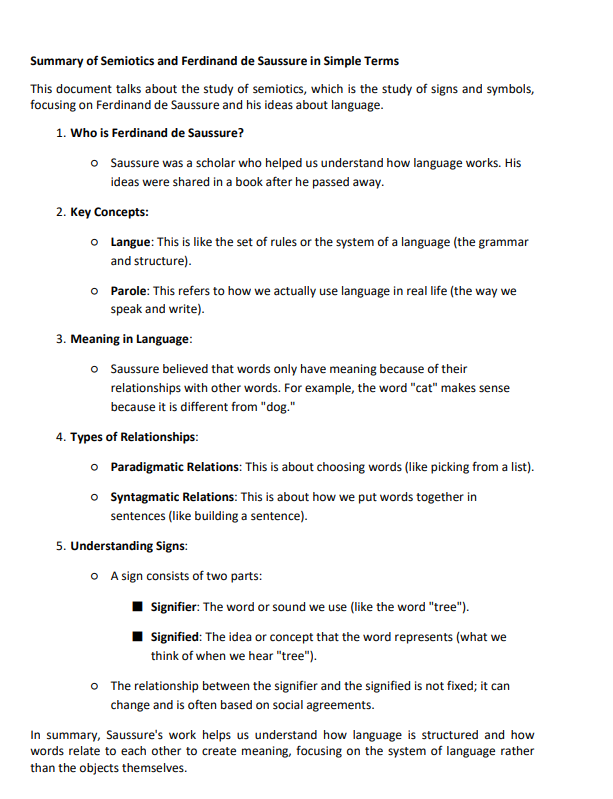Summary of Semiotics and Ferdinand de Saussure in Simple Terms.

Understand the Problem
The document is a summary discussing Ferdinand de Saussure's contributions to the study of semiotics, covering key concepts such as langue, parole, meaning in language, types of relationships, and understanding signs. It explains Saussure's views on the nature of language and its structure.
Answer
Saussure developed semiotics, focusing on langue vs. parole and signifier vs. signified.
Ferdinand de Saussure was a Swiss linguist who helped develop the study of semiotics—the study of signs and symbols. He introduced key concepts like langue (language system) and parole (actual language use) and emphasized the distinction between the signifier (sound/image) and signified (concept/idea).
Answer for screen readers
Ferdinand de Saussure was a Swiss linguist who helped develop the study of semiotics—the study of signs and symbols. He introduced key concepts like langue (language system) and parole (actual language use) and emphasized the distinction between the signifier (sound/image) and signified (concept/idea).
More Information
Saussure's ideas are foundational in linguistics and have influenced various fields, emphasizing the relational nature of meaning in language systems.
Tips
A common mistake is confusing the signifier and signified as fixed; they are dynamic and socially constructed.
Sources
- What is Semiotics?. Ferdinand de Saussure's Linguistic… - Medium - medium.com
- Semiotics for Beginners: Signs - cs.Princeton - cs.princeton.edu
AI-generated content may contain errors. Please verify critical information